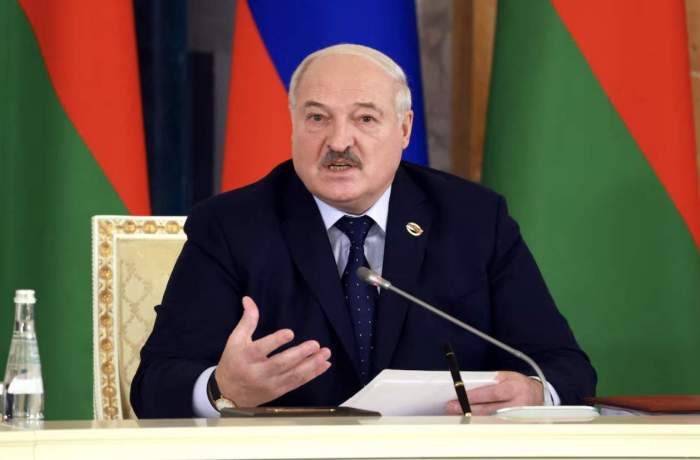
Creator: SPUTNIK | Credit: via REUTERS
A presidential election is set to take place in Belarus on Sunday, with the election commission expected to announce that 70-year-old Alexander Lukashenko has been elected for a seventh term, News.az reports citing foreign media.
The longtime dictator lost his legitimacy after the 2020 election, which was widely seen as rigged, and since then he has been internationally isolated and completely dependent on Russia. Now, he is seeking recognition.
During the public protests following the 2020 election, Lukashenko assured people that his sixth term would be his last. But he has not kept that promise; instead, he has been actively campaigning. “His main message is: ‘Without me, things will get worse. Belarus might be dragged into a war,'” said Valery Karbalevich, a Belarusian political scientist.
How will this election be different?
Lev Gudkov from the Levada Center polling agency in Moscow told DW that in 2020, according to polls, Sviatlana Tsikhanouskaya received 53% of the vote, while Lukashenko only won 28%. The Belarusian election authorities, however, declared that Lukashenko won 80.1% of the vote, and Tsikhanouskaya only 10.1%. The Levada Center is regarded as the only largely independent polling institute left in Russia.
Back then, the internet in Belarus was shut down for three days to cover up the alleged electoral fraud. Thousands were arrested, and many were tortured and beaten by the police. The violence sparked days of mass protests.
Now, almost five years later, the regime wants to avoid such scenes. Independent media have been classified as extremist and driven out of the country. The membership of election commissions is a secret, and only representatives of parties and organizations loyal to the government are allowed to observe the voting process.
Authorities only sent a formal invitation to OSCE observers at the last minute, which means they have escaped international observation leading up to the election. Instead, police will be on guard in the polling stations to watch over the voting process, and voting booths will not have privacy curtains. People are also prohibited from photographing ballots, and will be fined for any violation.
Polling stations will also not be made available outside the country, with Belarusians living abroad being told they should come to Belarus to vote. For opponents of the regime and politically persecuted individuals who have been unable to return home for years, many of whom have found asylum in EU countries, this is not an option.
There’s also no one for them to vote for, as Lukashenko has no real challengers. The opposition abroad has therefore called for a boycott of the “no-choice election.”